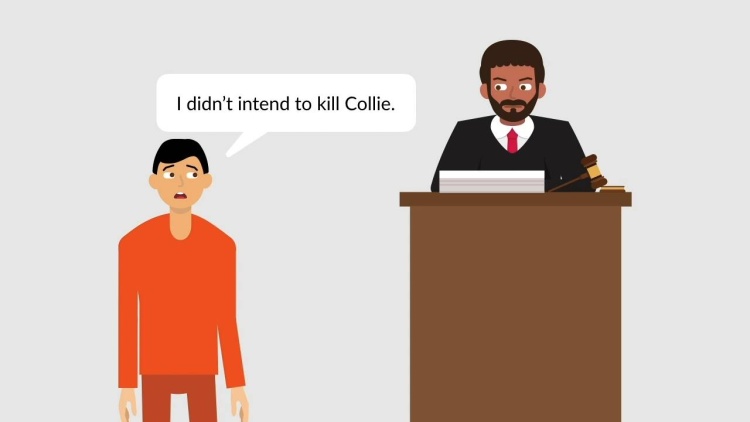Francis v. Franklin
United States Supreme Court
471 U.S. 307 (1985)
- Written by Lucy Elsbree, JD
Facts
Franklin (defendant), a prisoner, escaped from custody while receiving treatment at a dentist’s office after seizing a pistol from an officer who was guarding him. Taking a dental assistant with him as a hostage, Franklin fled from the office and attempted to obtain an automobile to use in his flight. Franklin first approached a local resident, but did not object when the resident said that he did not own a car. Franklin then knocked on the front door of Collie’s home and, when Collie came to the door, demanded the keys to Collie’s car. When Collie slammed the door, two shots from Franklin’s gun went off, the first killing Collie and the second going through the door and into ceiling of the house. Franklin made no attempt to stop the dental assistant from escaping shortly thereafter, nor did he make any effort to stop Collie’s wife and daughter when they fled after refusing to give Franklin the car keys. Upon being recaptured, Franklin admitted shooting Collie but stated that the shots went off accidentally after Collie slammed the door. Franklin was charged with malice murder and tried in the Superior Court of Bibb County, Georgia. At his trial, Franklin’s only defense was that he lacked the intent to kill required for malice murder. Franklin offered circumstantial evidence to support this argument, including the slamming of the door, the path of the second bullet, his statement on being recaptured, and the fact that he did not use force against any of the other people he met in the course of his flight. The trial judge’s instructions to the jury on the issue of intent included a presumption that the act of a person of sound mind is the product of the person’s will, a further presumption that such a person intends the natural and probable consequences of his actions, and a qualification that these presumptions were rebuttable. The judge also stated that a person was not to be presumed to be acting with criminal intent and that the prosecution had to prove every element of the offense beyond a reasonable doubt. Franklin was convicted and his appeal to the Supreme Court of Georgia was denied. The United States Supreme Court granted certiorari.
Rule of Law
Issue
Holding and Reasoning (Brennan, J.)
What to do next…
Here's why 907,000 law students have relied on our case briefs:
- Written by law professors and practitioners, not other law students. 47,100 briefs, keyed to 996 casebooks. Top-notch customer support.
- The right amount of information, includes the facts, issues, rule of law, holding and reasoning, and any concurrences and dissents.
- Access in your classes, works on your mobile and tablet. Massive library of related video lessons and high quality multiple-choice questions.
- Easy to use, uniform format for every case brief. Written in plain English, not in legalese. Our briefs summarize and simplify; they don’t just repeat the court’s language.





